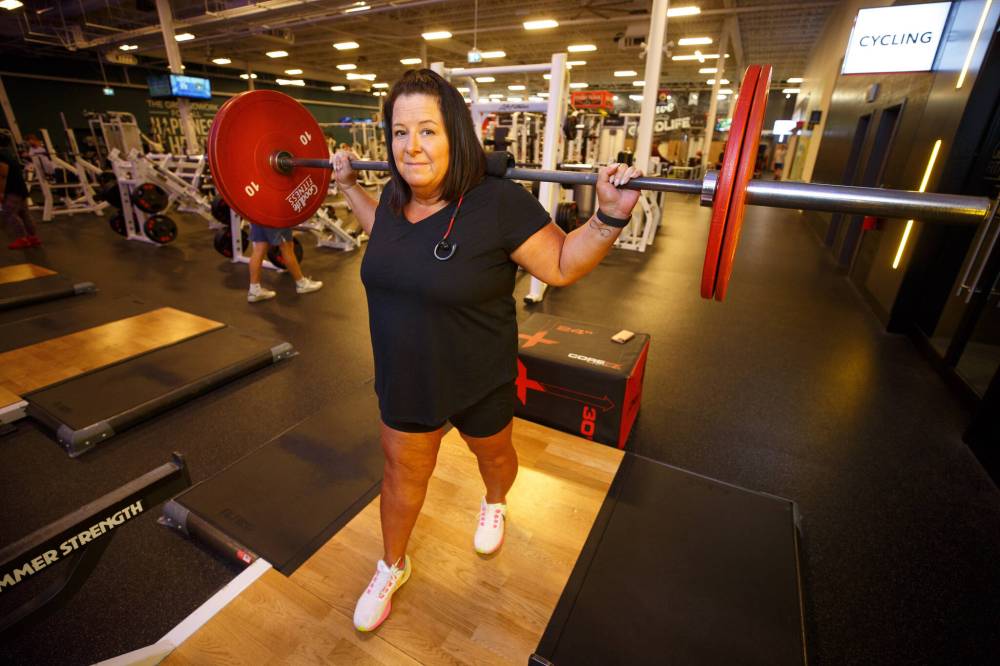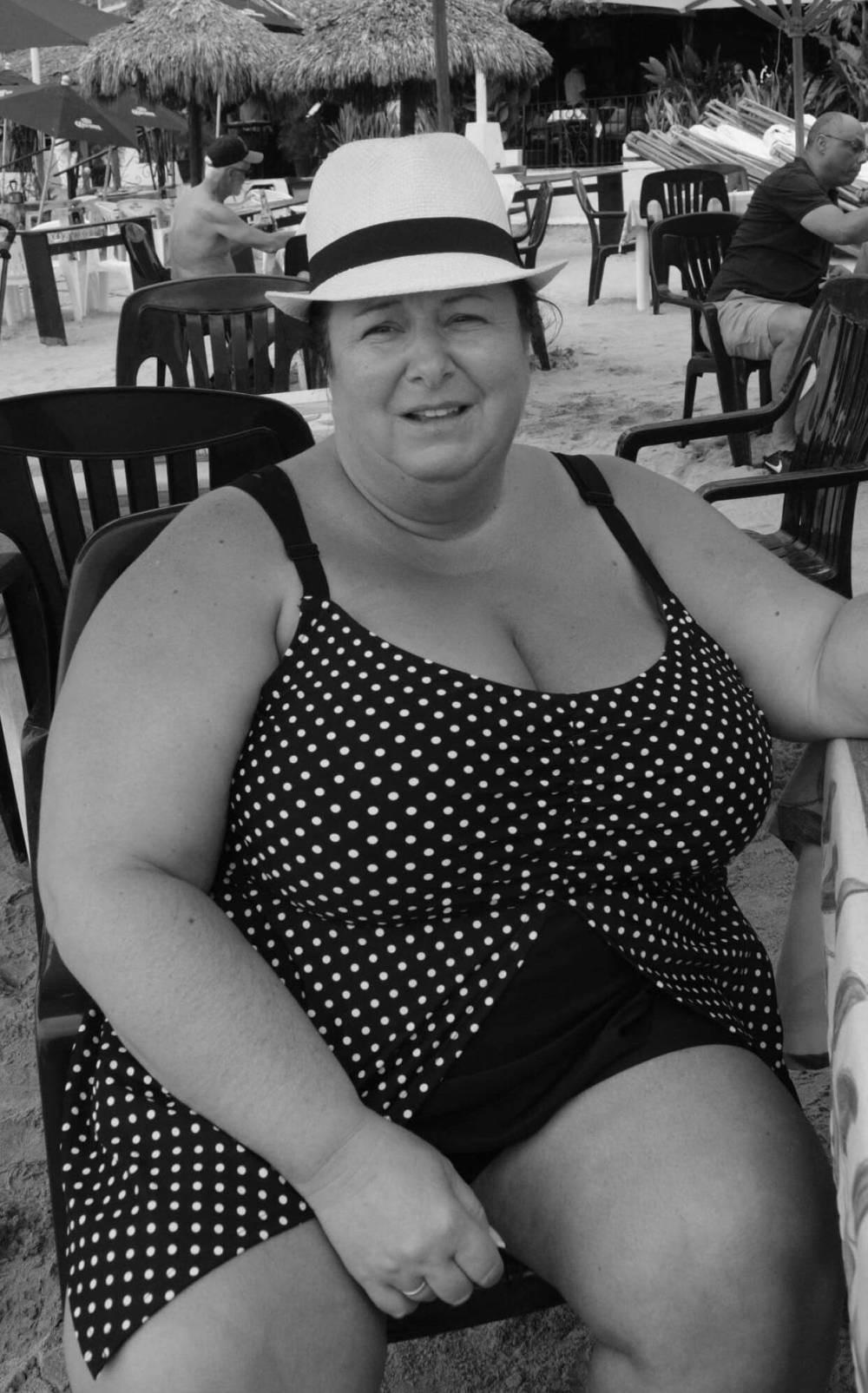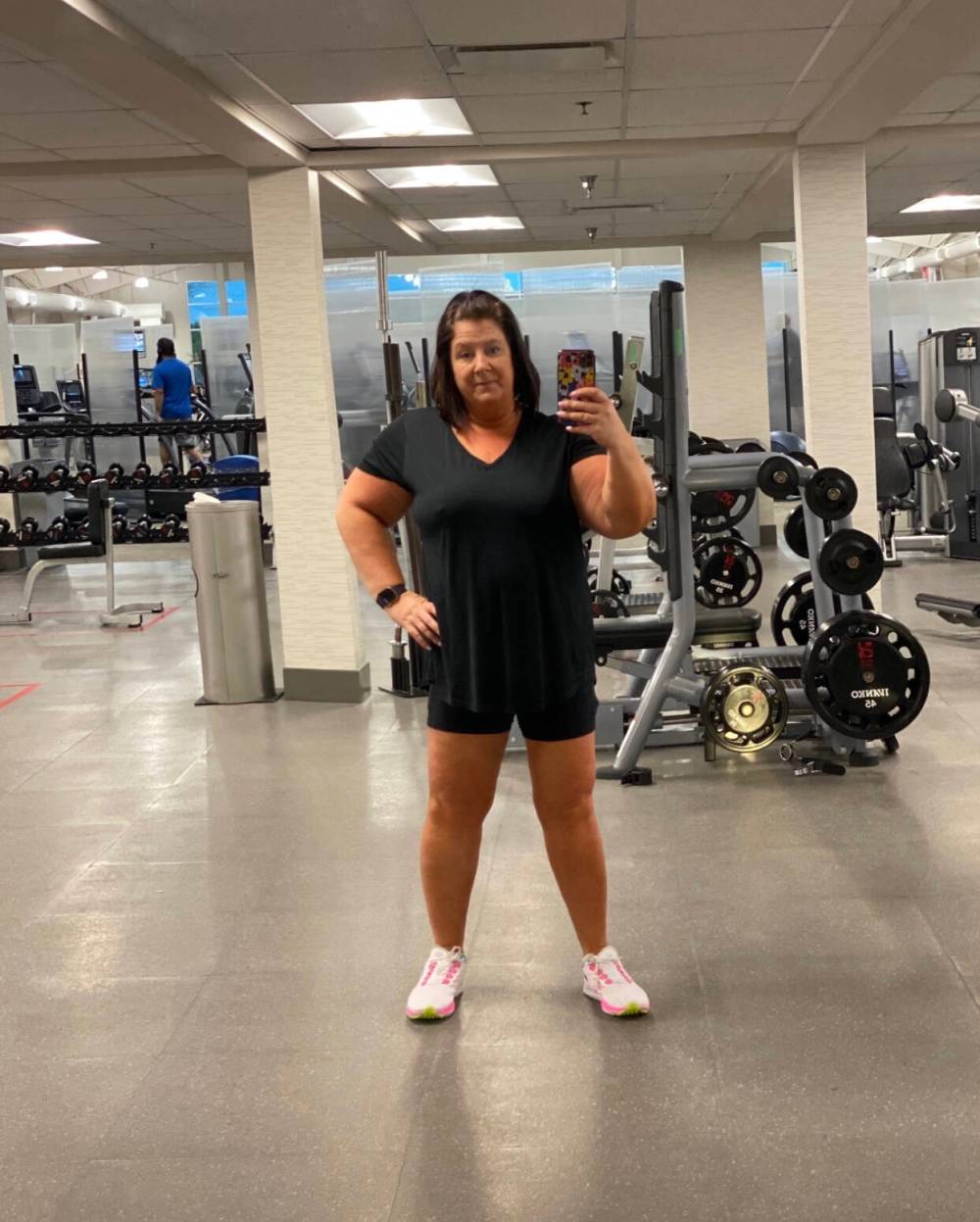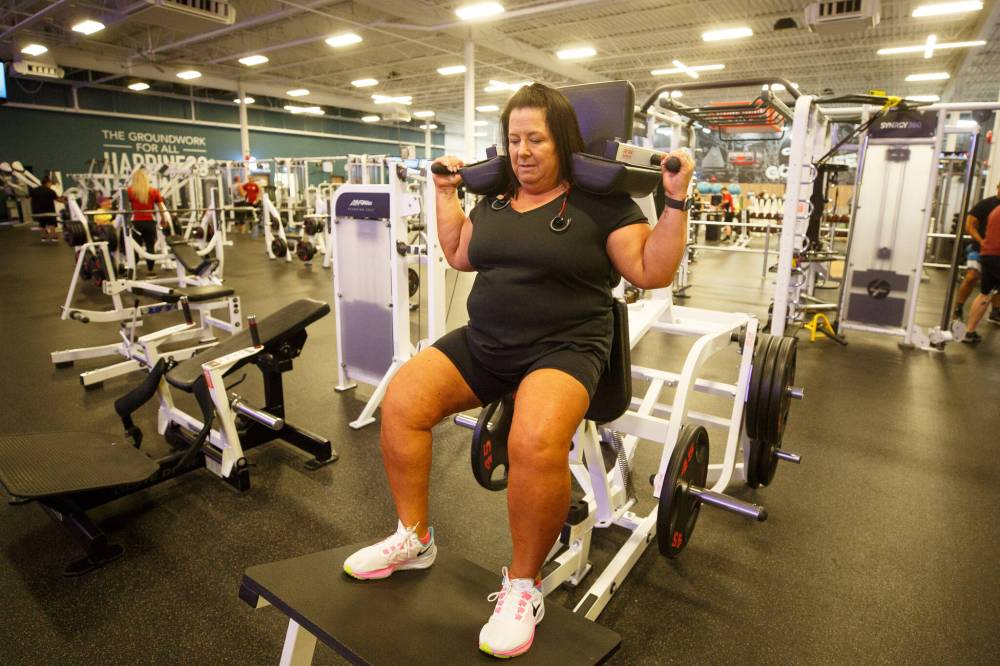Shape-up call
Type 2 diabetes diagnosis spurred businesswoman to get active and healthy
Advertisement
Read this article for free:
or
Already have an account? Log in here »
To continue reading, please subscribe:
Monthly Digital Subscription
$0 for the first 4 weeks*
- Enjoy unlimited reading on winnipegfreepress.com
- Read the E-Edition, our digital replica newspaper
- Access News Break, our award-winning app
- Play interactive puzzles
*No charge for 4 weeks then price increases to the regular rate of $19.00 plus GST every four weeks. Offer available to new and qualified returning subscribers only. Cancel any time.
Monthly Digital Subscription
$4.75/week*
- Enjoy unlimited reading on winnipegfreepress.com
- Read the E-Edition, our digital replica newspaper
- Access News Break, our award-winning app
- Play interactive puzzles
*Billed as $19 plus GST every four weeks. Cancel any time.
To continue reading, please subscribe:
Add Free Press access to your Brandon Sun subscription for only an additional
$1 for the first 4 weeks*
*Your next subscription payment will increase by $1.00 and you will be charged $16.99 plus GST for four weeks. After four weeks, your payment will increase to $23.99 plus GST every four weeks.
Read unlimited articles for free today:
or
Already have an account? Log in here »
Hey there, time traveller!
This article was published 22/08/2022 (1213 days ago), so information in it may no longer be current.
Michelle Bergen never imagined that a health scare three years ago would lead to social media stardom.
On top of being a mother, wife and caregiver, Bergen, 51, has a demanding job as a businesswoman. After years of putting others ahead of herself, including her chronically ill husband, Bergen was diagnosed with Type 2 diabetes three years ago.
“(That diagnosis) scared me. August 2019 was my wakeup call.”
MIKE DEAL / WINNIPEG FREE PRESS After Michelle Bergen was diagnosed with Type 2 diabetes three years ago, she lost more than 120 pounds and is now diabetes-free. She’s documented her health journey on Instagram, where she’s built a huge following.
Tired of feeling run down, Bergen knew it was time to show up for herself. Incorporating a gym routine into her lifestyle was only one component of getting her life on track — she also quit smoking and drinking, began tracking her food intake and joined WeightWatchers.
“I’ve been overweight the last 25 years of my life and have always searched for how to lose the weight. I previously joined WeightWatchers 10 times but was never successful. I’d get to a certain point and end up quitting,” she says. “But this time I was determined and motivated — giving up was not an option. I knew it was up to me to make a change.”
There are two main kinds of diabetes: Type 1 and Type 2. The former typically shows up early in life and occurs when the pancreas is unable to produce insulin, a hormone that allows your body to process sugar from carbohydrates for energy or to store for future use.
The latter develops over many years due to lifestyle factors. People with Type 2 diabetes can’t use the insulin made by their bodies effectively or their bodies aren’t able to produce enough of it.
SUPPLIED “My doctor is so proud of me. She saved my life and gave me the wakeup call I needed,” says Michelle Bergen.
If left untreated, Type 2 diabetes can lead to blindness, kidney failure, heart problems, neuropathic pain and amputations. According to Diabetes Canada, there are more than 5.7 million Canadians who have been diagnosed with either type and, every 24 hours, more than 20 Canadians die of diabetes-related complications.
As a newly diagnosed diabetic, Bergen researched nutrition to learn how best to fuel her body.
“I started to read a lot about different foods. I wanted to understand the science behind weight loss and what I needed to be successful.”
She also started going to the gym regularly and fell in love with physical activity after noticing changes in her body.
“I started getting muscles. I’ve never had that before,” she says. “Slowly I was seeing success. First five pounds, then 10 pounds. I actually cried when I first lost 20 pounds.”
The combination of physical activity and healthier food choices led to a 50-pound weight loss in six months. But the benefits didn’t end there. Earlier this year, she found out she’s diabetes-free, although, she still tracks her sugar intake to ensure she stays on track.
“My doctor is so proud of me. She saved my life and gave me the wakeup call I needed,” Bergen says. “I still test for diabetes just to make sure my sugar levels are under (the threshold) but I’m off all the medication and everything is good. I’m no longer diabetic.”
Research shows that Type 2 diabetes — which accounts for 90 per cent of those diagnosed, according to Diabetes Canada — can be “reversed” by a dramatic change in diet and activity levels. Researchers who have studied diabetes remission found that the people most likely to go into remission had Type 2 for less than 10 years.
SUPPLIED Incorporating a workout routine into her lifestyle was only one component of Michelle Bergen getting her life on track — she also quit smoking and drinking, began tracking her food intake and joined Weight Watchers.
“If somebody loses weight, initially, it’s possible to reverse (Type 2 diabetes) and send it into remission,” says Dr. Harvey Lee, an endocrinologist at Rossmere Medical Centre in Winnipeg. “You’d be surprised how much exercise and nutrition are capable of remitting somebody who has developed it.”
The reality check, however, is that diabetes is an ongoing disease, so remission doesn’t mean you’re cured. Even if you aren’t taking medication and your blood sugar levels stay in a healthy range, there’s always a chance that symptoms will return, Dr. Lee says.
To help keep herself accountable, Bergen began documenting her journey on Instagram. Since she started her account three years ago, she has amassed more than 27,000 followers.
“So many people reach out to congratulate me or tell me how I’ve inspired their journey and it’s the absolute best feeling. I talk to people all over the world,” she says. “I post all of my fitness routines, recipes, things like that. Sometimes I’ll get 1,500 followers in a day.”
Now armed with a popular fitness account, brands and influencers have begun reaching out to Bergen wanting to work with her, including a global giant.
“Somebody (from WeightWatchers) reached out to me and said, ‘We love your story. We’re interested in working with you.’” says Bergen. “They asked if I’d be interested in joining the Canadian ambassador team. I said ‘Absolutely.’ I don’t think people would know who I am or what I do if it wasn’t for Instagram.”
Despite gyms shutting down during the pandemic, Bergen didn’t just persevere, she thrived. Today, she has lost more than 120 pounds.
“When the pandemic hit, I just kept going through my journey. I ordered a bunch of equipment online and worked out in my house every morning. I didn’t quit.”
MIKE DEAL / WINNIPEG FREE PRESS To help keep herself accountable, Michelle Bergen began documenting her journey on Instagram. Since she started her account three years ago, she has amassed more than 27,000 followers.
One of the motivations for Bergen to take her health scare more seriously was her husband, Bob. He suffers from Berger’s disease and recently had his leg amputated. As a result of their lifestyle changes, he has also lost 70 pounds.
“When he had his leg amputated, losing that weight really helped him recover,” she says. “He used to be so resistant to change but now he loves the food I make.”
Giving up alcohol was a crucial lifestyle change. Happy hour used to be an almost daily ritual, Bergen says. Now, she prefers going out for coffee on a Friday night and incorporates physical activity into her daily routine. She says her relationship with food has changed and and she continues to watch her sugar intake.
In addition to her full-time job, Instagram has become a passion project.
“I go to the gym in the morning, come home and get ready to go to work all day,” she says. “At night when I’m in bed, it’s all Instagram. What I post, how to tag, what people are looking for, what’s trending. It’s kind of become my side hustle.”
Through her Instagram account, Bergen has found a community of people with the same mindset and similar goals — she says those connections are important. And for anyone considering a similar health journey, Bergen has a simple tip: don’t give up.
“It doesn’t happen overnight. It’s a journey, not a race. Be patient with the process,” she says. “Life is too short and happiness is rare. Don’t ever give up on you.”
sabrinacarnevale@gmail.com
@SabrinaCsays

Sabrina Carnevale is a freelance writer and communications specialist, and former reporter and broadcaster who is a health enthusiast. She writes a twice-monthly column focusing on wellness and fitness.
Our newsroom depends on a growing audience of readers to power our journalism. If you are not a paid reader, please consider becoming a subscriber.
Our newsroom depends on its audience of readers to power our journalism. Thank you for your support.
History
Updated on Monday, August 22, 2022 9:28 AM CDT: Corrects spelling of WeightWatchers





